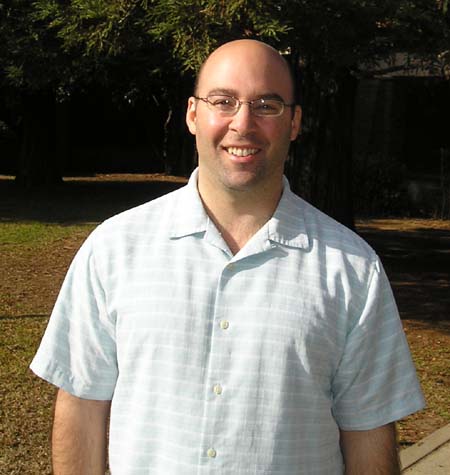My memory can no longer be trusted. Until recently, I thought I knew my own history. I was even writing a series of poems about a time I thought I knew well. Then I found an old journal, written when I was twenty years old.
According to me, several significant events occurred that year. Events, I’m sure, that my twenty-year-old self would think unforgettable. But here I am, on the eve of my fiftieth birthday, and I can’t remember them. This revelation put into question the “truth” of the poems I’m writing.
In many ways, the twenty-year-old self I’ve been writing about is fictionalized by memory—by the retelling of old stories. By rationalizations and justifications. Writing in the third-person point-of-view helps account for that distance. It's something Jack Gilbert may be doing in his poems.
Mr. Gilbert has become a major influence on my writing. I admire the way he writes so bravely about his life. James Dickey wrote this about him: “He takes himself away to a place more inward than is safe to go; from that awful silence and tightening, he returns to us poems of savage compassion. Gilbert is the rarest of beings: a necessary poet, who teaches us not only how to live but to die creatively, and with all meaning.”
Sometimes Mr. Gilbert writes about his past in the third person. This provides an interesting sense of perspective, some distance between the present and the remembered past. “A Year Later,” from The Great Fires: poems 1982 – 1992 (Knopf, 2006), provides a good example.
A YEAR LATER
for Linda Gregg
From this distance they are unimportant
standing by the sea. She is weeping, wearing
a white dress, and the marriage is almost over,
after eight years. All around is the flat
uninhabited side of the island. The water
is blue in the morning air. They did not know
this would happen when they came, just the two
of them and the silence. A purity that looked
like beauty and was too difficult for people.
In “Infidelity,” Mr. Gilbert writes about the past not only in the third person, but also in the present tense. Doing so makes the poem feel as real today as did on the day the event occurred. And the poem rings true.
INFIDELITY
He stands freezing in the dark courtyard looking up
at their bright windows, as he has many nights since
moving away. Because of his promise, he does not
go up. He is thinking of the day she came back
from the hospital. They did not know her then.
He was looking down because of the happiness in her
voice talking to her husband as they went across
the courtyard. She saw him and, grinning, held up
the newborn child. Now it is the last time ever.
He finally knocks. Her eyes widen when she opens
the door. She looks to indicate her husband is home
as she unbuttons her dress. He whispers that his hands
are too cold. It will make me remember better,
she says, and puts them on her nakedness, wincing,
eyes wild with love. It is snowing when he leaves,
the narrow street lit here and there by shop windows.
Tomorrow he will be on the train with his wife, watching
the shadows on the snow. Going south to live silently
with perfect summer skies and the brilliant Aegean.
Thursday, December 6, 2007
Tuesday, December 4, 2007
ZAID SHLAH at Sacramento City College Nov. 29, 2007

Zaid Shlah came to visit the Sacramento City College and talked about his love of Arabic culture, poetry in particular. He read several pieces from his book entitled Taqsim [Frontenac, 2006]. Taqsim are short improvisational pieces played on an oud, and the pieces that Shlah read had a feel of meditations by route of stringed instrument. He explained how the cover of the book was a photograph of a favorite uncle who lived in the north of Iraq near Kirkuk, a man who had dedicated himself to Arabic cultural traditions, in particular to the playing of taqsim. For Shlah, there was no other photograph that evoked the spirit of taqsim more than this one.
He read selections from “Taqsim”, followed by ”Afternoon Confession,” “The Reception,” “Arabic Snow,” “Driving Towards Gethsemane,” “Leaving Iraq, Entering Alberta,” and finally, “Asking Iraq to Comply.”
Shlah answered questions after the reading ranging from personal questions to questions about his work. He talked about his tenuos position as an Iraqi-Canadian who now finds himself in California. He also revealed he enjoyed reading his taqsim to an oud accompaniment like one might experience at a salon in Iraq where the poet and the musician are counterpoints to each other.
Subscribe to:
Posts (Atom)